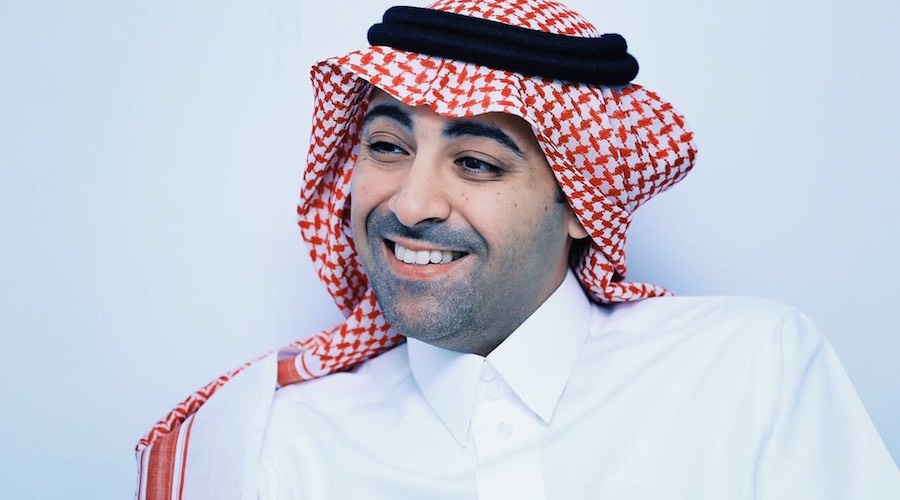How Badir is accelerating entrepreneurship in the KSA

Over the past decade, Saudi Arabia’s entrepreneurial ecosystem has come a long way.
One of the main players in nurturing and spreading entrepreneurial culture in the Kingdom is Badir.
A technology incubator and accelerator program launched by King Abdulaziz City for Science and Technology (KACST) in 2007, Badir is a comprehensive national program that aims to create a knowledge-based society and economy in Saudi Arabia.
To that end, Badir activates and updates technology business incubators, promotes the concept of technological entrepreneurship, transforms technological projects, and researches successful commercial opportunities.

“When Badir started in 2007, there was no angel investment network, there was no network for incubators and accelerators in the Kingdom, no seed funds existed, and none of the regulations in place today existed,” Nawaf Al Sahhaf, CEO of Badir, told Wamda via email.
Badir also seeks to create an environment conducive to the emergence of technological institutions, one based on the principle of reducing risks and building up viable businesses.
“Badir worked on creating the missing links in the Saudi ecosystem,” said Al Sahhaf. “In 2009, it created the Saudi Business Incubator Network (SBIN), paving the way for unifying the regulations and standards for operating [businesses] and accelerators in the Kingdom.”
In due course, Badir established the Saudi angel investors network, SIRB, which is bridging the gap between entrepreneurs and investors.
More insights from Al Sahhaf on Badir and the Saudi ecosystem in the below Q&A:
Wamda: What are the main challenges in the Saudi ecosystem that Badir is trying to meet, and why?
Al Sahhaf: Badir’s aim is to create more technology-sustainable startups and to spur the entrepreneurial mindset in the Saudi society.
So far, Badir has served more than 200 startups since its inception, which used to struggle in securing investments, in reaching out to their customers, and in benefiting from the support that the government extends.
Badir worked on developing the national incubation policy, creating an angel investment network and filling the gap caused by the misalignment of cultures between university and community, by creating university entrepreneurship programs.
Today, Badir is focusing on expanding its innovation and entrepreneurial hubs across the Kingdom in order to achieve its KPIs of creating 600 startups and 3,600 jobs by 2020.
The program is also creating a soft landing to diversify its startup portfolio and increase capabilities among local startups, as it has been seen that foreign residents are essential elements in the ecosystem.
Wamda: Tell us more about this soft landing for international and regional startups.
Al Sahhaf: The goal of the soft landing program is to have foreign startups account for 20 percent of the overall incubated startups.
It will provide foreign startups access to the Saudi market, logistics, and contacts. It helps foreign startups understand the business culture and practices in Saudi Arabia through training and orientation.
Through soft landing, Badir wants to gather technologies and innovation talents from around the world and create a win-win outcome between the local and foreign participants in its entrepreneurial hubs.
The program already has a pipeline of 10 foreign startups under evaluation.
Wamda: How does your program cover the Kingdom in terms of several large and different cities?
Al Sahhaf: Currently present in three cities (Riyadh, Jeddah, and Taif), Badir plans to expand to Dammam, Buraidah, and Abha in its first expansion phase, to be followed by three other locations in the foreseeable future.
In Riyadh, Badir witnessed high demand, and focuses on three major verticals: advanced manufacturing, information communication technology, and biotechnology. In Jeddah, Badir saw from its studies that the demand was strong [for] ICT, whereas in Taif there was a fragmented demand that [led us to] focus [on] mixed technologies.
Wamda: There seem to be a lot of IPs registered at universities, with innovators having no idea how to commercialize them. What is Badir doing to remedy this?
Al Sahhaf: In May of 2015, KACST perceived the pressing need of Saudi inventors to protect their inventions, and so the inventor’s services office at Badir was created with the aim to facilitate procedures for patent applications.
Through that office, as well as Badir’s work with universities, the number of uncommercialized IPs was noticed, and in late 2016 the “Transfer Inventions to Market” accelerator was launched with its first cohort of 10 inventions.
The accelerator is underway at the time of this interview and will be concluding soon.
Wamda: What is your funding strategy, and how do you secure access to capital?
Al Sahhaf: Badir is providing seed funding for accepted projects in the accelerator stage. For later stages, we facilitate the funding through matching investors with entrepreneurs via our quarterly held demo days.
Wamda: In which sectors have been the most successful, and why?
-
The Saudi market is the largest in the MENA region, so they... quickly gain[ed] momentum and market share.
-
Successfully understanding the dynamics of the local market... as well as [its] gaps.
-
With respect to the biotech industry, the startup was able to take the [lead in obtaining] approval for medical formulas from the Saudi Food and Drug Authority, paving the way for new startups.
Wamda: Entrepreneurs tend to 'uberize' their ideas, so there are many delivery apps on the market in Saudi Arabia. What model makes for the best fit?
Al Sahhaf: We believe that the Saudi market is a dynamic one that evolves and changes constantly, and it is willing to adapt and accommodate new business models.
We saw the successful adaptation of the Uber business model in the Saudi market [with] several apps. However, with new regulations [in the offing], we are expecting new business models to emerge.
So, to answer the question simply, we do not think that only one business model can fit.


